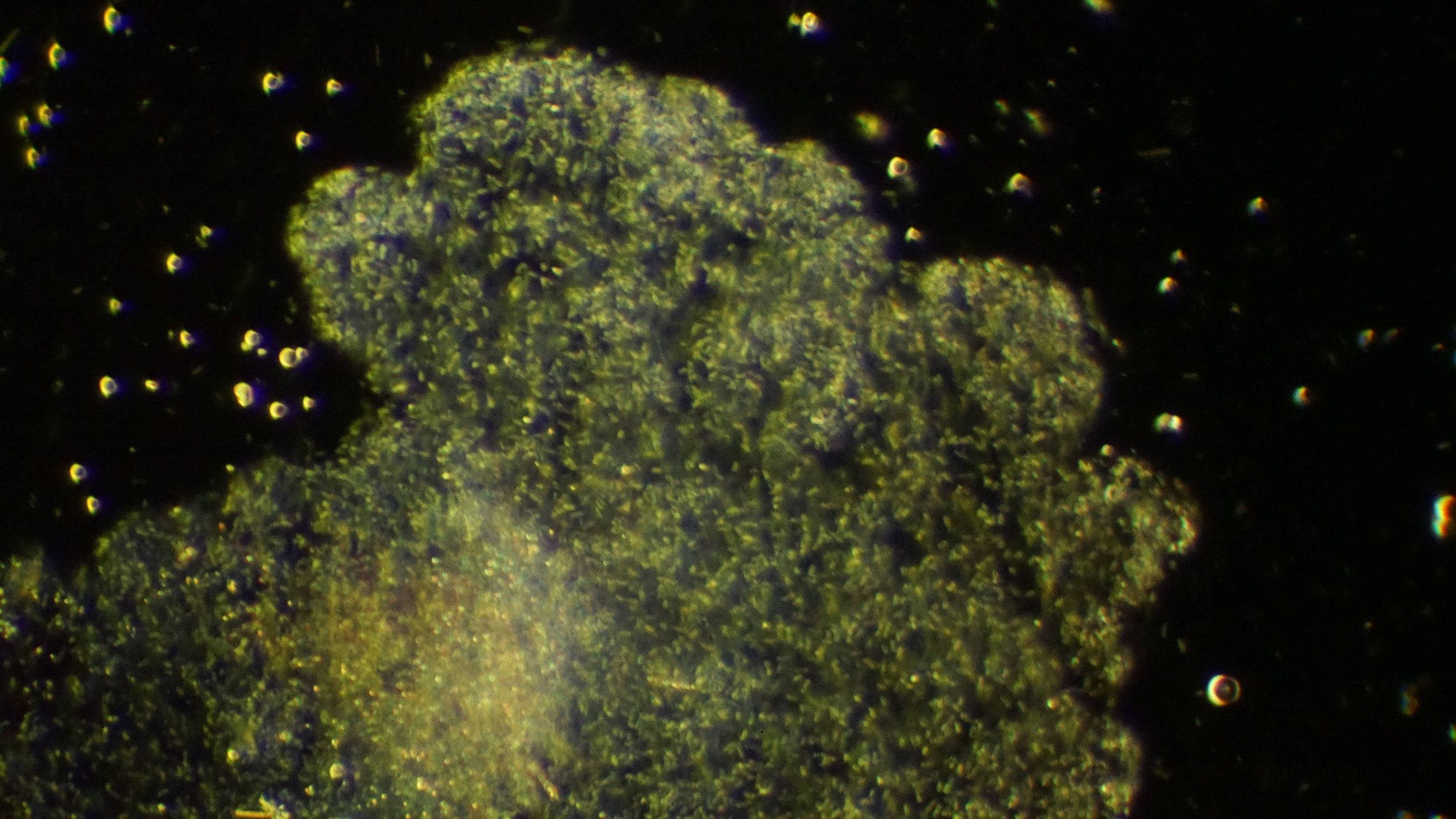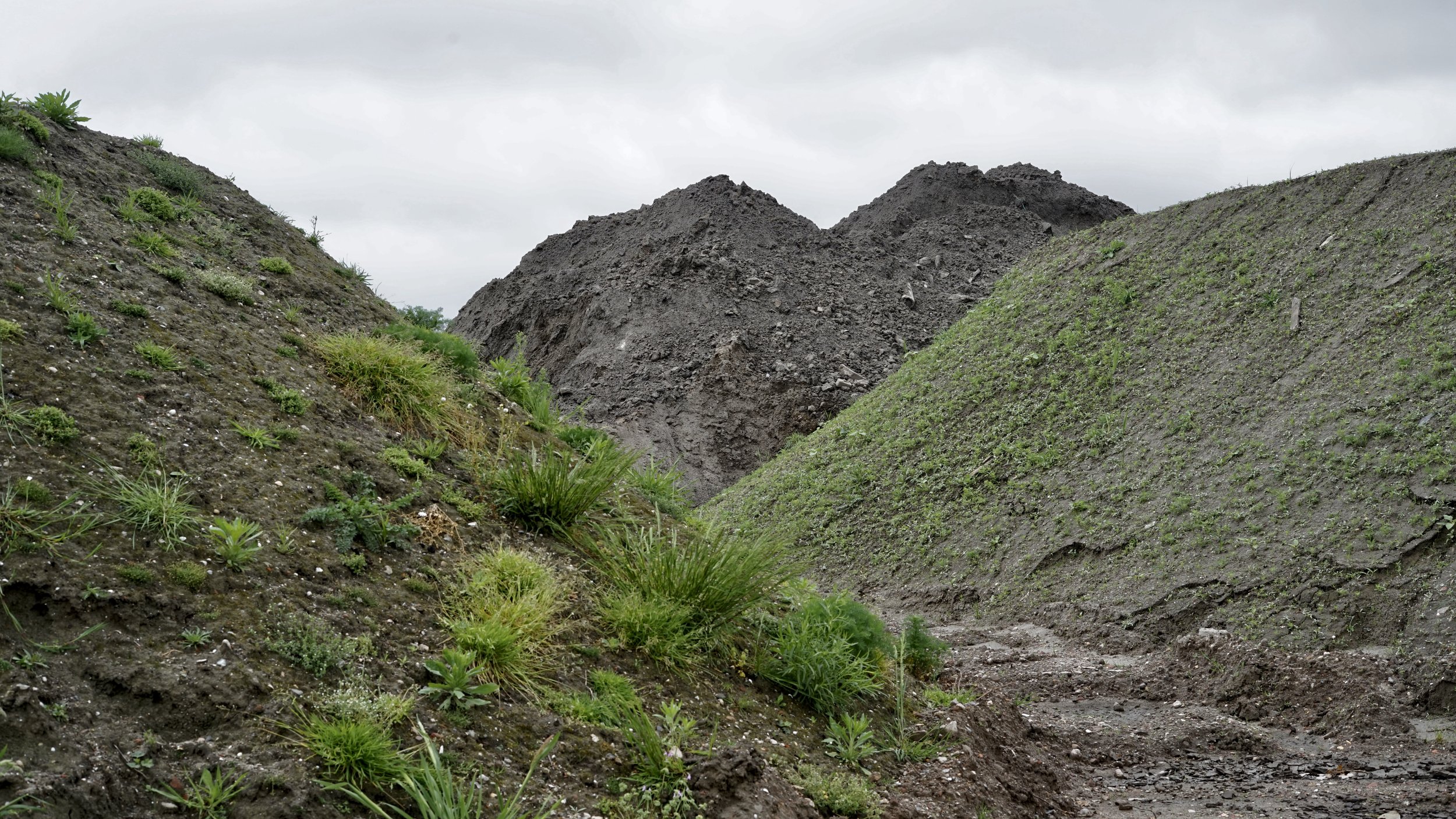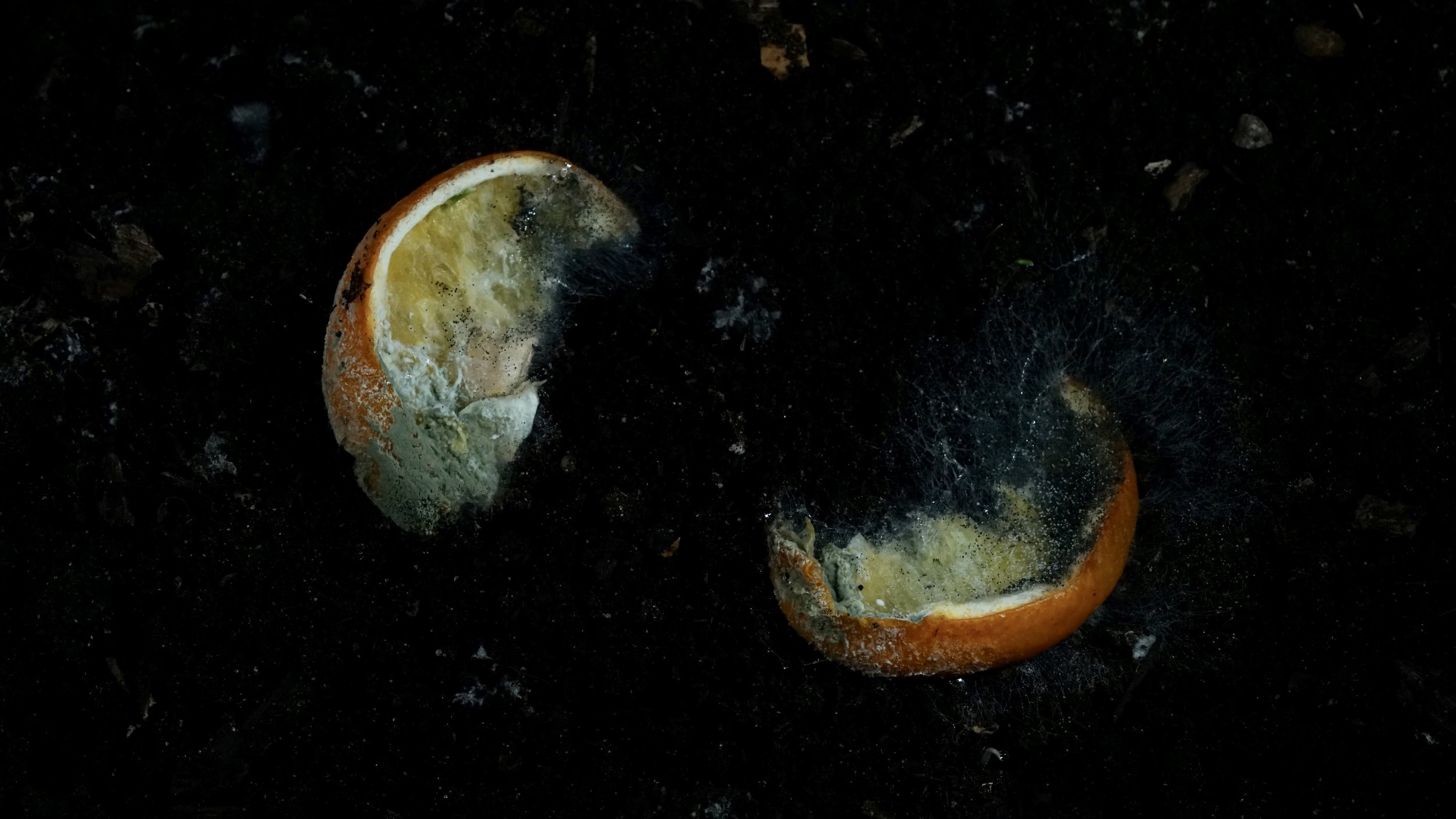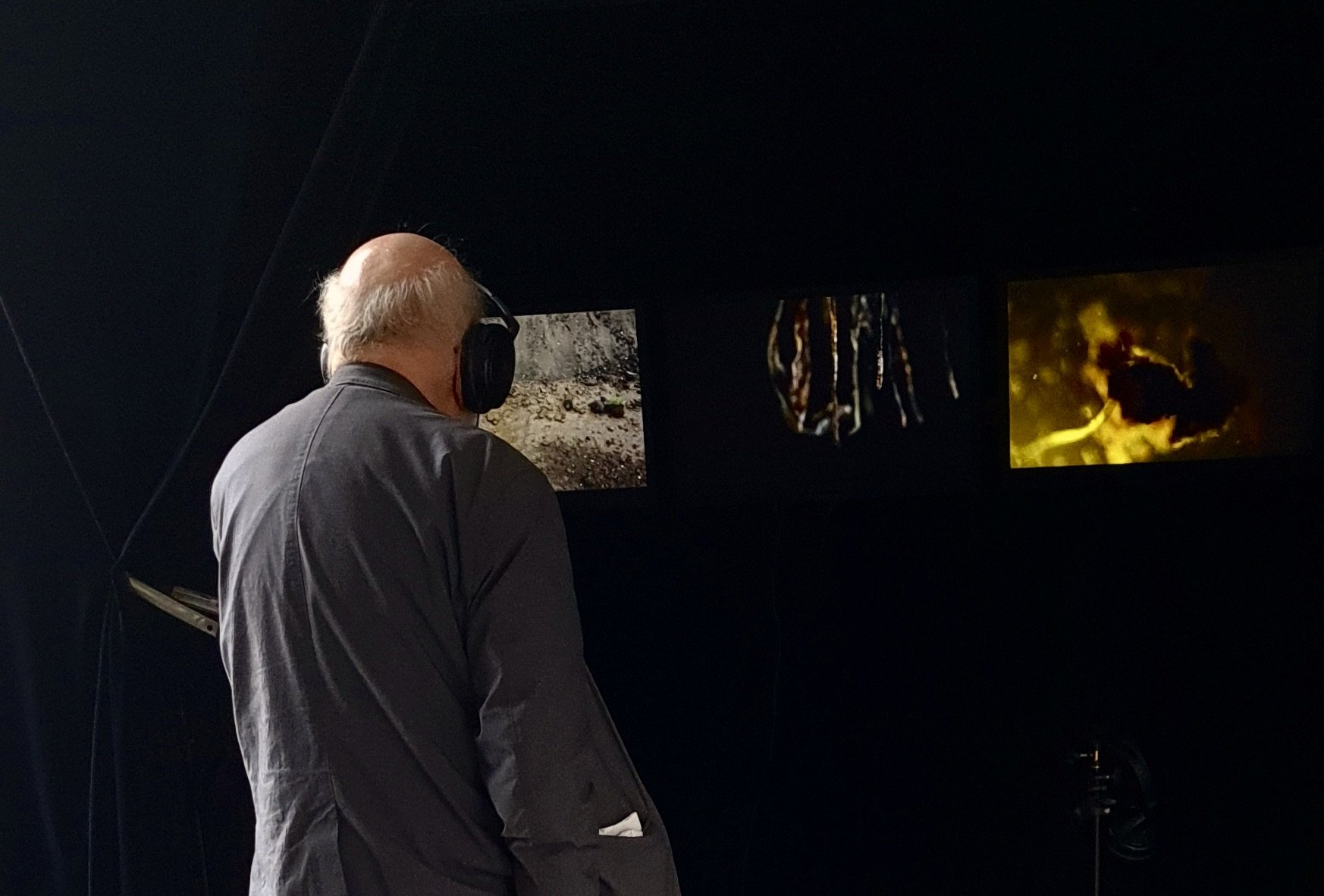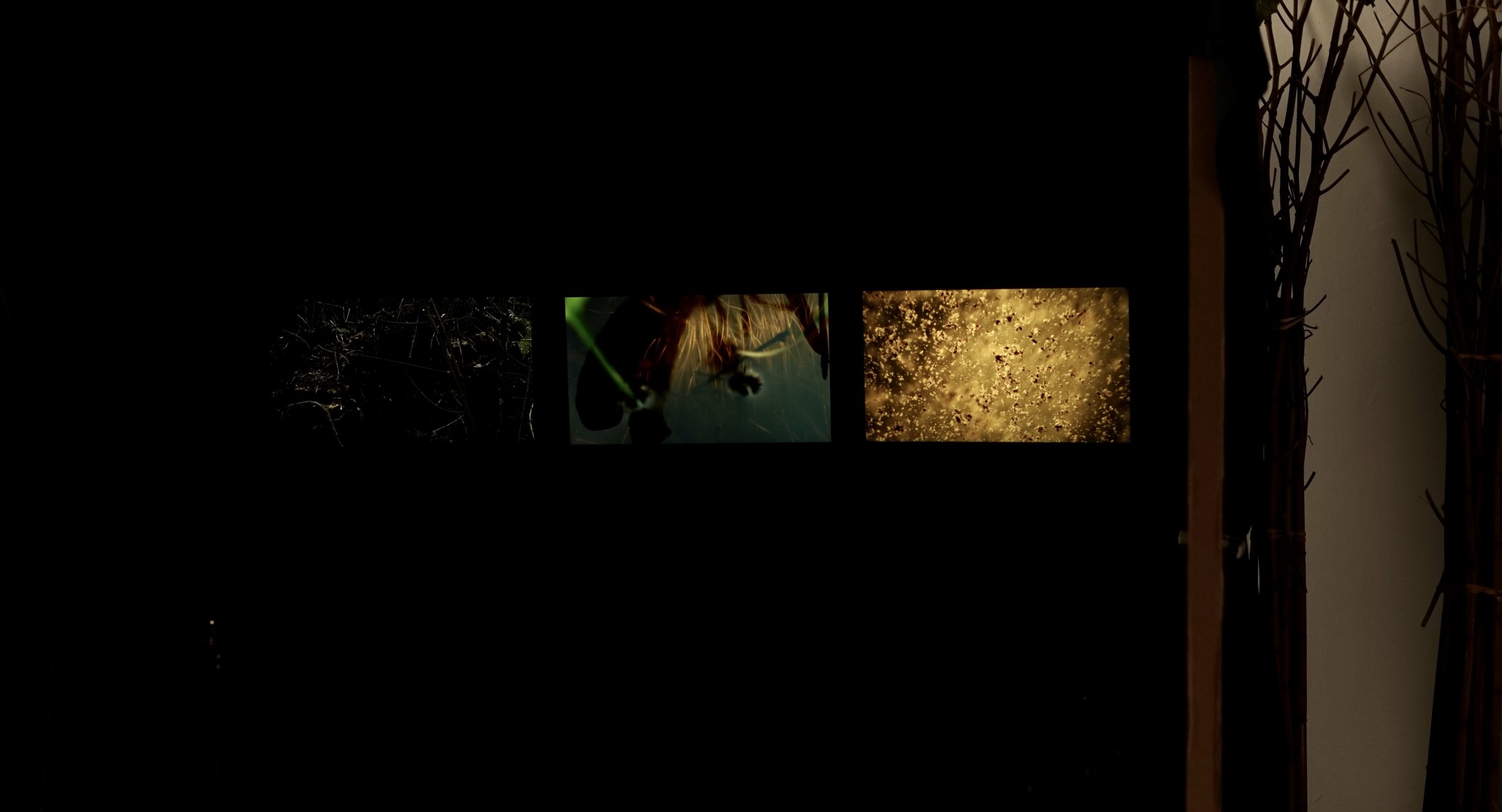Missing every ground
(Elke grond missen)
Out of sight, out of mind. This is particularly true of soil, because the processes that take place in soil operate on scales that escape our perception.
Our difficulty in perceiving the ground is not caused solely to the limitations of our eyesight. Our cultural perception has also given soil very little importance. This lack of knowledge is regrettable, because it leads us to neglect the vital functions of earth, which is the basis of all ecosystems. On the contrary, a better knowledge and understanding of soils gives us the means to take action to combat global warming and its effects, among other things.
Missing Every Ground is a 20 minute video essay on three screens that explores the link between the microscopic nature of soil life, its impact on ecosystems through an intimate stream of thought.
“The soils grow slowly, evolve through time and can also disappear. We witness their attempts at appearing every day. Who has never seen the traces of dirt on a building or a terrace? That is the beginning: a thin layer of bacteria .”
It is not strange that I meet many water animals under my microscope. The ground has been populated through the water it contains.
Grondbank Rotterdam.
“I also thought then that we humans had colonised the entire world. Today I know that you nematodes have surpassed us in more than one way.”
As little children, we do not suffer from the poor image of the ground.
We are often in its proximity and we get to know it through direct physical contact.
On all fours, there is always plenty to experience.
Once on two feet, these encounters often become more unpleasant. Black bloodied knees, torn trousers and the discontent of our mothers seem to encourage us to leave this continent.
Simultaneously with the distance between our heads and feet, grows our dislike and disinterest for the ground.
What we see at the level of the individual can also be seen at a cultural level.
The evolution of objects in Western culture demonstrates this. Until recently, what we called progress were often inventions that separated us from the ground. Unfortunately, many of us still believe that no intellectual life is possible without shoes, just as there is no abstract thinking without chairs.
Could this aversion to soil in Western culture stem from religion?
Christianity created the first paradise on earth. Its first and only male inhabitant, Adam, was even made of clay. Since the paradise according to Genesis is no longer on earth, humanity's ultimate goal seems to be to reach heaven... A line that, if followed to the end, leads to space travel and the colonisation of the moon.
Chapiter 4, Missing every ground
“Christianity created the first paradise on earth. Its first and only male inhabitant, Adam, was even made of clay. Since paradise according to Genesis is no longer on earth, humanity's ultimate goal seems to be t reach heaven...”
‘A few years ago, it also seemed that deciphering our DNA would prove our superiority as a species once and for all. We could never have imagined that bacteria have 24 times as many genes as we do. “
“Almost nobody decorates their house with a picture of the soil. Nor do we post selfies with a freshly ploughed field in the background.”
“The concept of life and death is poorly adapted to the materiality of life on earth. We think linearly in a circular world.”
Missing every ground
Presented
To complete this project, I actively sought out simple solutions and materials that were already lying around my studio; for example, the darkroom for the macro photography was made from salvaged materials, as were the filters I made myself to bring the microscopic images to life.
I also learnt to work with new techniques and equipment. To stay in line with my philosophy, I chose second-hand equipment that wasn't too complex and an open-source programme for editing the video and creating the voice-over.
Studio preview
Rotterdam 2024





